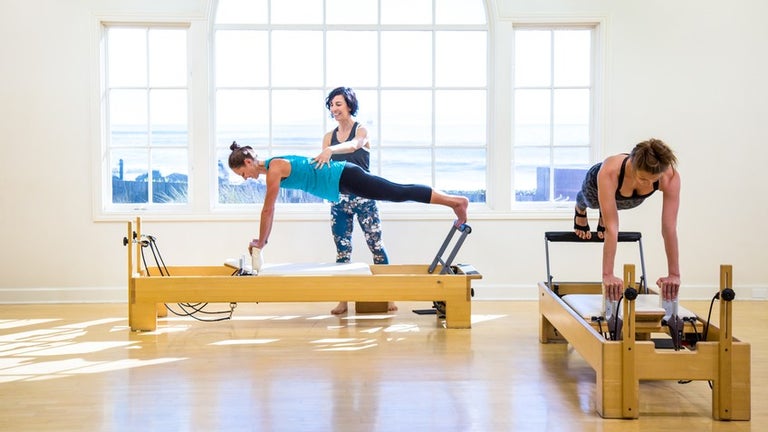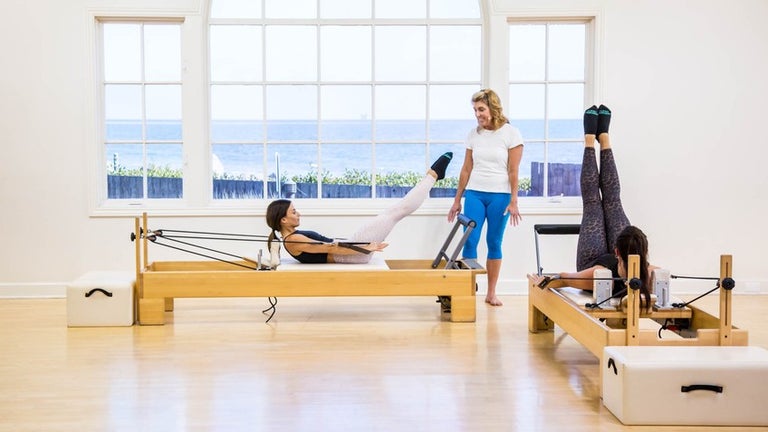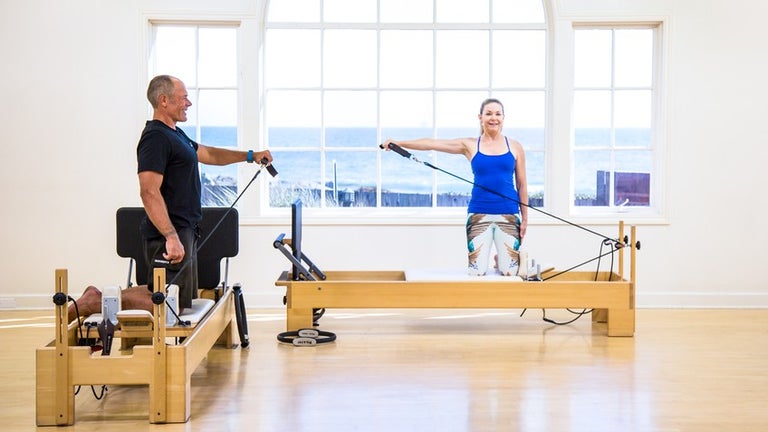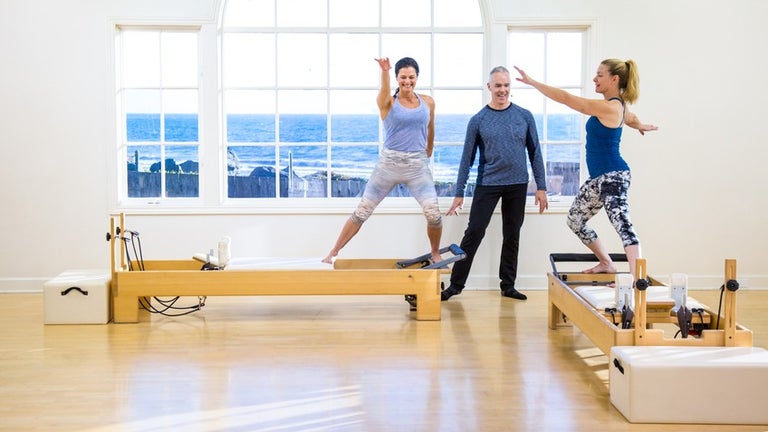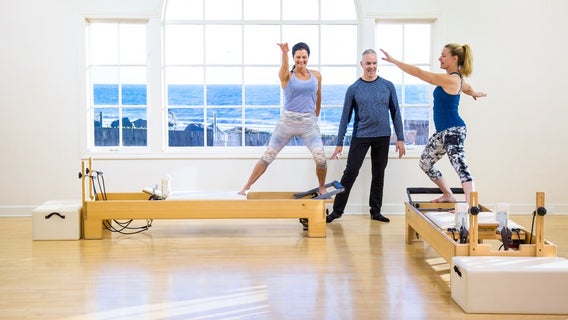Pilates Reformer Group Classes
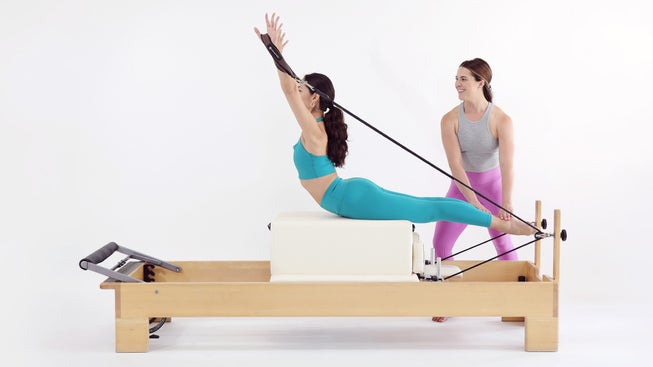
An Introduction to Pilates Reformer Group Classes
Since the early 2000s, boutique fitness studios offering group classes, such as spin, boxing, or barre have proliferated across the United States. This new business model, combined with Pilates’ growing popularity, has resulted in the rise of stand-alone group Reformer class studios. These studios differ from traditional Pilates studios, in which clients take private and semi-private sessions. Whether Pilates studios are independently owned or part of a national or international franchise, they are responsible for introducing the public to Reformer workouts. These practitioners include those who may not have sought out Pilates before, such as younger people, cardio aficionados, and men.
Group Reformer Classes
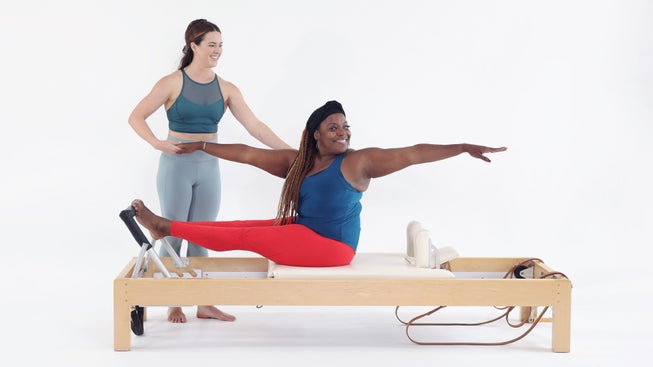
What to Consider When Looking for a Group Reformer Class
When searching for a group Pilates Reformer class, we recommend reflecting upon the following questions:
Consider the training of the instructors. Are they certified? If so, do they have a nationally recognized Pilates instructor certification or were they trained in-house?
Are the Pilates machines well-maintained or are they shabby, grimy, or rickety?
Does the studio offer small or large group Reformer classes?
Does someone greet you when you arrive at the studio? Do they make you feel welcomed and valued?
Do you resonate with your instructors and the overall look and feel of the studio? You may enjoy loud music and bright lights during your workout, while others may prefer a calmer atmosphere. We suggest trying different studios to help you find your ideal fit.
Frequently Asked Questions
Are group Reformer classes right for me?
Yes, as long as you are prepared. We recommend you purchase a pair of grip socks, which most Pilates studios require for both hygiene and safety. A studio may also request you attend a private session to orient you with the equipment before joining a group class. If you are new to Pilates, the studio, or the instructor, we suggest you arrive early. That way, you can let the instructor know about your fitness experience and any injuries ahead of time so they can best guide you during the class.
Can I start group classes as a Beginner?
Yes. Some Pilates studios offer special beginner Reformer classes either weekly or every couple of months. These classes provide more informative instruction about the Reformer and the basic exercises. These classes may also move at a slower pace so you can get comfortable with the equipment.
How do I know what level class to take?
We recommend you start with a Beginner-level Reformer class and level up as you begin to feel more comfortable with the apparatus. When you attend these classes, you will be responsible for setting up your own equipment, including adjusting the Reformer’s springs. Remember that Pilates, even in an athletic setting, is a subtle modality. As you learn how to work more deeply, you will begin to see and feel the changes in your body even in practicing familiar exercises.
Do I have to know all the exercises?
No. As Pilates has risen in popularity, it is not uncommon for instructors to add creative variations to the classical repertoire. As a result, expect to see challenging variations on the familiar exercises such as Footwork, Pelvic Lift, and Short Box that draw from disciplines as varied as dance, boxing, and barre.
Join Our Online Community
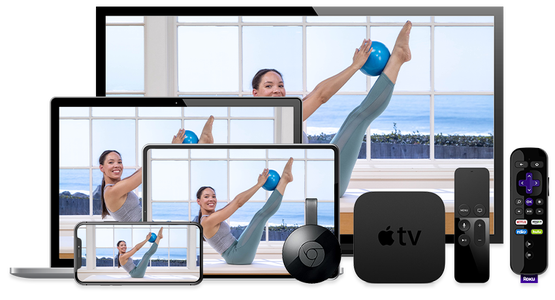
- 15-Day Free Trial
- Unlimited Access to Thousands of Classes
- 95+ Pilates Programs and Challenges
- No Ads
- New Videos Weekly
- Available on All Your Favorite Devices
